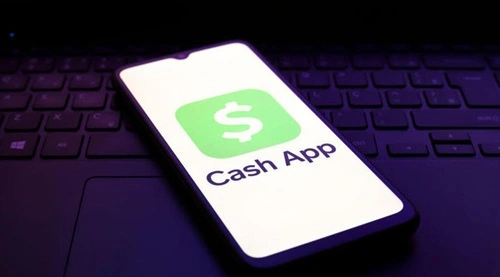One of the most downloaded cash transfer apps in the U.S. known as Cash App has just settled out of court to pay one point two five million dollars following allegations that it sent out promotional text messages without permission of users. The cash app spam texts settlement applies to individuals in Washington State who might have received the messages between November 14, 2019, and up to now. In case you received such a message, you could receive up to a payment of 147.
This post outlines the eligibility process, how to file a claim, and how the case impacts consumers and fintech companies in the U.S.

Why Cash App Faces a $12.5 Million Settlement
The case originated after a resident of Washington Kimberly Bottoms alleged to have received a Cash App referral text without having registered with the application. She claimed that the “Invite Friends” option of the app had a default to send advertisement messages to numbers in the contacts of users even when they did not consent to receive such a message.
The suit alleged that Block, Inc., which is the parent organization of Cash App, has broken the Consumer Protection Act (CPA) and Consumer Electronic Mail Act (CEMA) of the state of Washington. Such legislations guard citizens against unwanted e-mail communication and deceptive marketing schemes.
Block Inc. did not confess to any wrongdoing but accepted to pay $12.5 million dollars to bring down the case. The move enables the company not to undergo lengthy litigation and possible increased expenses, and pursuing and compensating qualified consumers.
Who Can File a Claim?
You can receive a payment in case you:
- Owned a mobile number in Washington State in the eligibility period,
- Between November 14, 2019, and the date of the settlement approval, received one or more Cash App referral text messages, and
- Did not approve to get these messages.
The settlement addresses almost two million Washington-based telephone numbers. Every qualified individual should receive an average of $88 to $147 depending on the number of eligible claims and the administrative expenses.
How to File a Claim
A claim is an easy operation via the Internet, which provides the ease of everyone in the settlement. Claimants will be required to:
- Go to the official claim site (the link will be provided upon court validation).
- Provide your personal information such as a phone number.
- If you have received a Cash App spam text, provide evidence of it (where possible).
- Choose the method of payment: check, PayPal, Venmo, or eBay deposit.
- File the claim form within the official deadline (which can be stated after special attention is given to the court in preliminary terms).
The settlement announcement will be made by mails, mail, or online adverts to people within Washington. After the expiration of the claim period, the payments will be sent via the electronic or mailing channels.
Why This Settlement Matters
The cash app spam texts settlement highlights the growing concern over digital privacy and user consent in the fintech world. A lot of financial applications operate on the basis of referral or marketing message as a way to fish in new users, which is subject to legal limits when there is no explicit consent to send a message.
To the consumers, this case attests the need to have data privacy rights. It is reminding the users that before the companies send out promotional messages, express permission should be sought by the users. It further indicates that state and federal regulating bodies are becoming tougher to undesirable digital marketing.
In the case of fintech companies, it is a reminder that these businesses need to revisit their marketing platforms and consent formulations. Companies where automated communication is fostered should be fully aware of regulatory rules such as the TCPA (Telephone Consumer Protection Act) and state-specific privacy laws.
Pattern of Legal Issues for Block Inc.
It is not the very first time Block Inc. encountered legal issues. The company paid millions in other cases in recent years:
- A $15 million settlement over a data breach that exposed sensitive customer information.
- The Consumer Financial Protection Bureau (CFPB) fined the company a total of $175 million because of customer service and fraud protection failures.
Such incidents present a tendency towards making financial technology companies dealing with their user data and money more closely regulated.
What Happens Next
The court is about to declare the important dates when the claims should be presented and payment provided. Once approved, the eligible users will be compensated. The bulk of the payouts will be made in mid to late 2025, assuming the time required to examine and confirm claims.
In case you believe you got one of these referral texts, then you must keep in touch by receiving official announcements and get ready to file a claim when the site opens.
Final Thoughts
The cash app spam texts settlement is a consumer privacy victory in the digital era. It makes it very clear that companies should pay attention to the rights of users and ask their permission prior to sending a marketing message. Although the payout might be relatively small, the case establishes a crucial precedent in all subsequent lawsuits concerning data misuse and unwanted communication.
Since technology is still defining American money management and information exchange, settlements such as this one will keep users and companies in mind and remind them that privacy, consent and transparency should be prioritized first.
This is a promotion to Washingtonians and could see you receive your portion of this $12.5 million settlement.